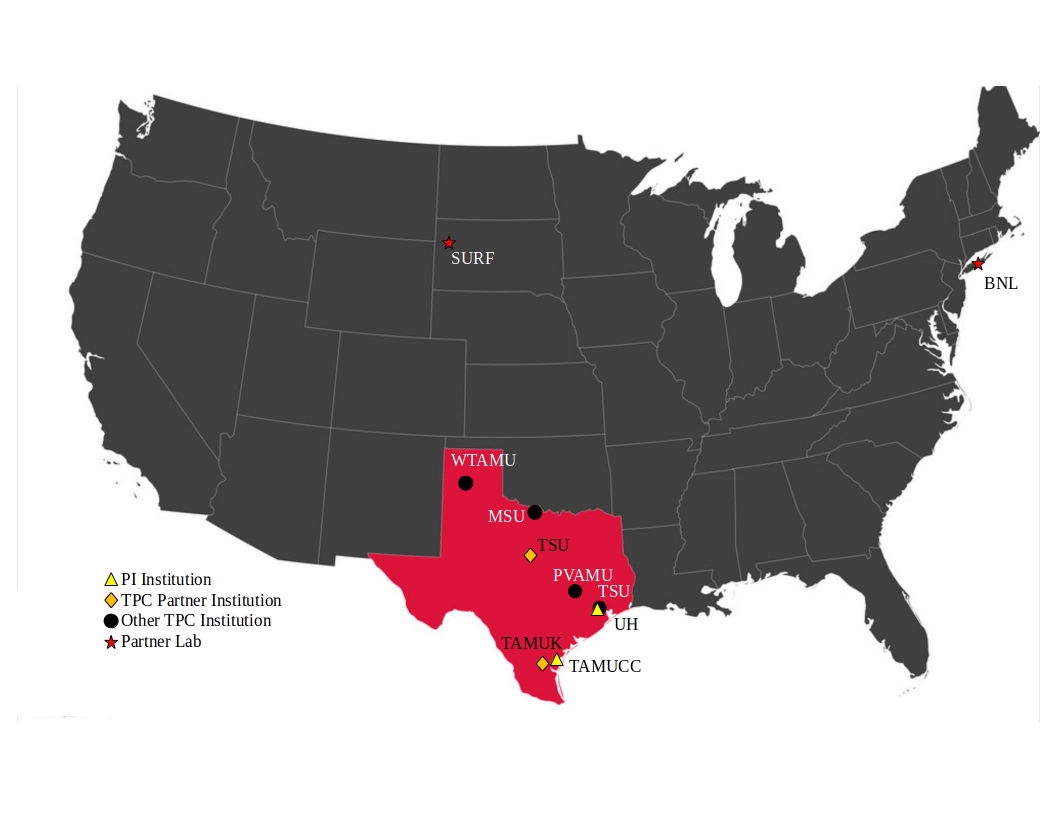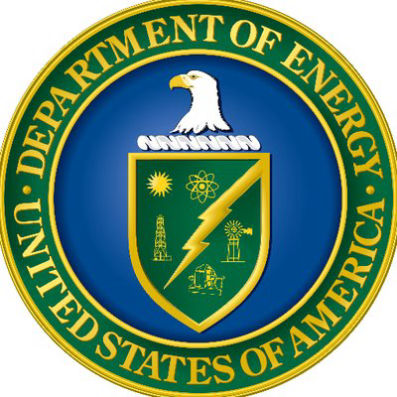NuPUMAS Collaboration
The University of Houston (UH) will partner with universities from the Texas Physics Consortium (TPC) to participate in this collaborative program. The strong relationships between TPC member institution’s professors and students will allow NuPUMAS to recruit from a large pool of students from a variety of backgrounds. The TPC has 7 member institutions jointly awarding a Physics Bachelor’s degree and 1 other institution sharing courses but awarding its own Physics degree. The institutions of the TPC serve a large percentage of underrepresented groups.
The NuPUMAS program is modeled off of the successful Nuclear Science in Texas to Enhance and Advance Minorities (NuSTEAM), Each year nine students joined the NuSTEAM program where they completed a six-week intensive training course at UH followed by a two-week experience at Brookhaven National Lab (BNL). Members of NuSTEAM from UH also work in participation with other Participating Institutions of Texas having significant minorities.
None of the TPC member institutions have physics graduate programs. However, the participating faculty and TAMUCC, TAMUK, and TSU all have expensive undergraduate research programs that include relevant topics for students interested in particle physics. Thus, these institutions will provide minority rising senior undergraduate students with the program.





